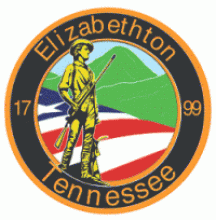
Fast, affordable Internet access for all.

Elizabethton, Tennessee, population 14,000, is the county seat of Carter County, which is home to 57,000 residents. The two, located in the extreme northeast corner of the state, now join the ranks of the growing number of rural communities exploring the publicly owned network option.
A Task Force, appointed by Carter County Mayor in January of this year, includes local leaders from local government, school districts, higher education, and the business community. They were charged with determining the need, feasibility, and level of community support for a publicly owned network.
In addition to conducting surveys in the local business and non-profit sectors, the Task Force met with potential ISPs to gauge interest and explore potential public/private partnerships. The group identified anchor institutions, researched keys to success and causes of failure in other communities, determined an estimate for the build out, and explored potential financing. The Task Force finished their final report in May. The group formerly presented it to the Carter County Commission last week and Elizabethton City Council earlier this week. The report revealed that a county/city network can be a reality and is critical to local economic development and quality of life. Like other small communities around the country, Carter County and Elizabethton recognize that their residents will be left behind if they don't take action.
Carter County Tomorrow (CCT), an economic development partnership between the County, Elizabethton, and nearby Watauga, contributed to the presentation. Jason R. Mullins, of the Elizabethton Star, covered the City Council meeting:
The CCT President [Tom Anderson] said the county could attract high-tech companies to the area to develop a data center or server farm. “We could possibly get one of those if we could get the proper infrastructure in place to get what they need, which is either a dual feed from two different fiber companies or we could have redundancy. That is when you have a loop to make sure if something gets cut, it re-routes data in the other direction,” Anderson said.
The group recommends a three phase plan and a close collaboration between Carter County and Elizabethton to capitalize on resources. Phase I includes connecting a local industrial park to allow local businesses to be on the network. Phase II would connect all government, healthcare provider facilities and schools in Carter County and Elizabethton (we recently released a report on a similar network in Martin County, Florida). Phase III would be a Fiber-to-the-Home deployment to the County's 831 miles of roads, and the residents who live on them. Early estimates range from $8.3 million to $24.9 million.
Next steps will be appointing a Broadband Community Network Implementation Committee that will conduct a feasibility study. That group will establish a marketing commitee and start holding community meetings and outreach activites. The Mayor of Carter County will lead the financing efforts by pursuing federal and state grants while also working to establish partnerships with the private sector.
